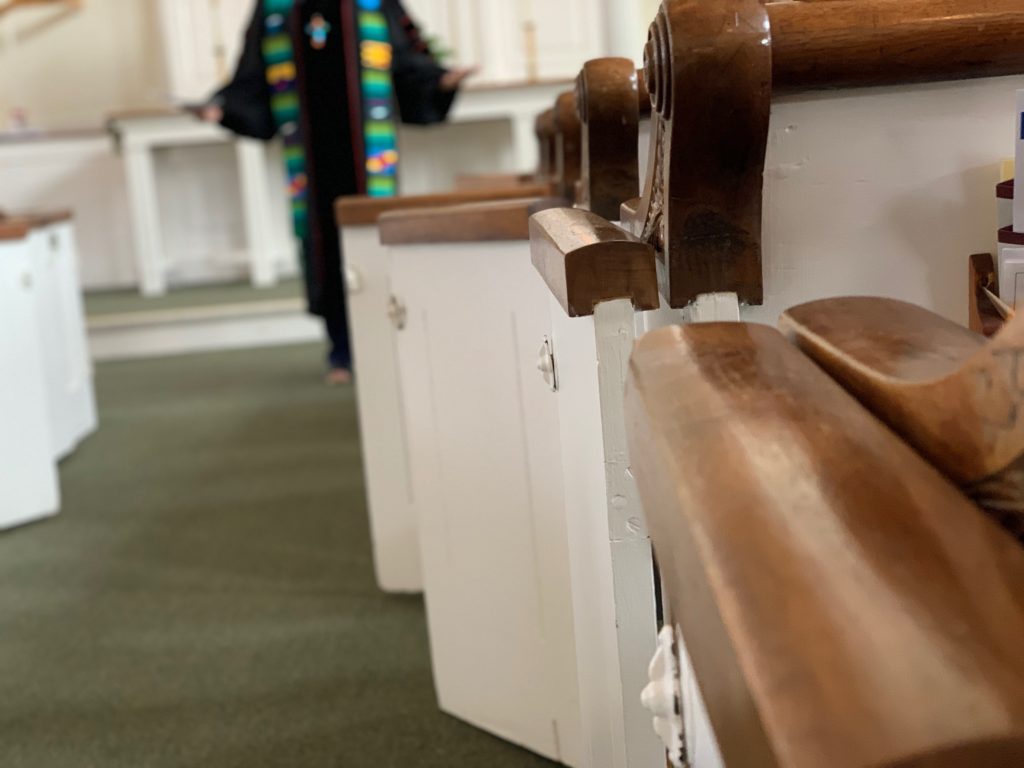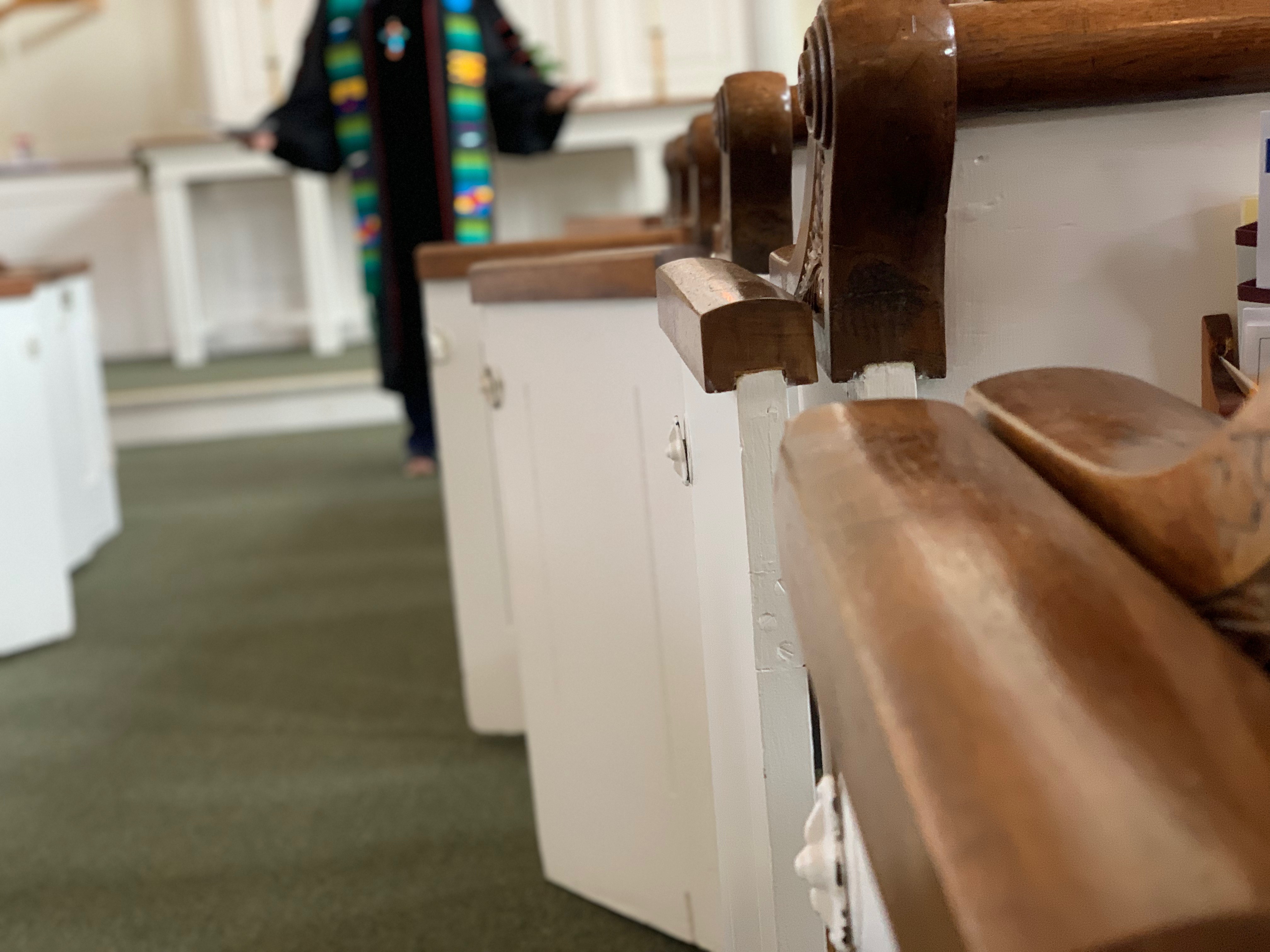
The theology of boxed pews.
Ginger mentioned that she overheard our new ministerial intern use the phrase in a conversation. It stuck with me. Box pews allowed allowed families to sit together in a regular spot and provided shelter from cold drafts. They were typically purchased or rented by families and the cost could be substantial—sort of like the private boxes that ring stadiums today. During the colonial period, some churches, like the Old North Church in Boston, were “closed” church, which meant if you didn’t own a box, you couldn’t attend—or, at least, you couldn’t sit down.
The boxed pews are true to their name in another respect. The word pew comes from the Latin word for podium. Over time, as in centuries, the word to mean a sort of elevated seating box for VIPs at major gatherings or for families of a certain social rank to sit in. Most all of this came about after the Reformation. Before that, everybody stood for the service, like a general admission concert where whoever gets there first gets to be closest to the stage. That image takes me back to a night at the Bronco Bowl in Dallas where I got to see The Alarm. (Oh, my friends, oh, my friends, oh, my friends . . .)
The sanctuary of our church is not the original meeting house. The first one—in 1643—was a stone building with a thatched roof. Our current wooden church building was erected in 1830. We have boxed pews of a sort. Each pew has a door with a latch. Four or five people can sit together comfortably. Well, comfortably is stretching it, as far as the design of the seat itself. There’s room for five in the space.
I like to sit on the aisle and leave the door open. When we first got here, one of the ushers would come down during the prelude and close all of the doors. We went back and forth a couple of times before they realized I was going to keep opening mine.
It’s hard to know whether theology made the pews, or the pews shaped our theology, or at least our sense who we are in that space. Maybe I should call it congregational anthropology. Either way, the nature of the pews and the room invite us to stay in our places. There is one way in to the pew and one way out. To get up to pass the peace takes effort. I preach from time to time at another church in the area where the seating is more open. The people move freely to greet one another. We are a warm congregation. We like to be together. The pews make it hard to show that to one another on Sunday morning.
We are shaped by our spaces.
Sometimes we get to choose them. My recent spate of posts began with finding a space, or making one, where I could write. It gave me the room to finish the draft of a manuscript I have been working on for three years. People here in town find it humorous that Ginger and work in different coffee shops on the Green, but we have each found our place in the different cafés.
Sometimes the space comes with whatever we are doing, like our sanctuary. To significantly alter the room would fly in the face of history and tradition, and probably cost an incredible amount of money. There might come a time when it will be worth it to change, but that time is not now. The room is beautiful. In true Congregational tradition, the windows are clear and the sun fills the sanctuary on Sunday morning. The wooden walls make the music reverberate. That we sit in pews, boxed or not, that have held worshippers for over two hundred years makes that great cloud of witnesses feel as though they are still in the room, even if is hard to get across the aisle. The lack of air conditioning means the windows are open and we can hear the bells ring down from the steeple as we come and go.
I guess what caught me most about the phrase on Sunday was noticing how infrequently we talk about how the spaces of our lives shape us and how we can shape the spaces. We have more options that leave it like it is or go Fixer Upper on it all. Once upon a time, people paid for their pew. Now we gladly let anyone come in and sit down. How did that happen? What’s the story? Why don’t we tell it.
It’s not just about the seats. It’s about who we choose to be as we sit in them.
Peace,
Milton
